Christy O'Connor: Cork GAA entitled to put value on development squad experience
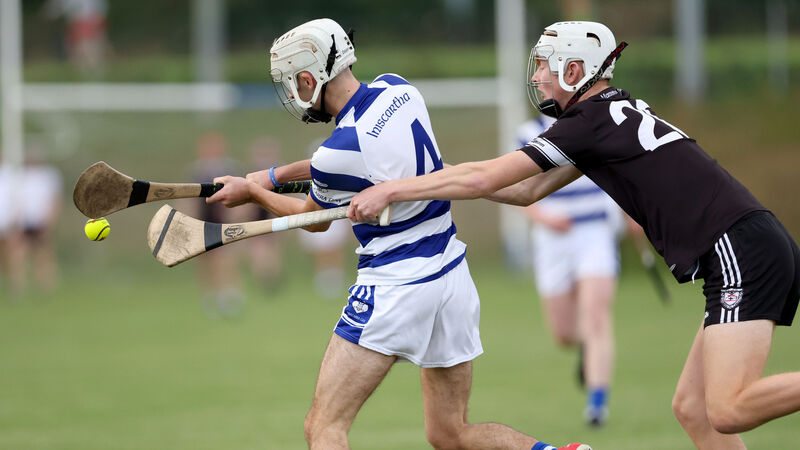
Sean Óg Holland, Inniscarra, clears from Shane O'Mahony, Midleton, in a recent minor hurling clash. Many young players in Cork aspire to reach development squads. Picture: Jim Coughlan.
When the USA women’s soccer team won back-to-back World Cups in 2015 and 2019, there was an optimism within USA soccer that their domination could continue.
Except it didn’t. The USA were eliminated from the 2023 World Cup at the earliest stage in their history of the competition. Was that just a blip or a portent of what may be about to come?
The USA’s domination had also slowed down at underage level. Other countries have caught up, with Spain and England reaching a first World Cup final in 2023.
Yet as well as there being an acceptance that USA machine was no longer operating at the same high level, the real question being asked was how could the US keep up – especially with their pay-to-play model.
The term ‘pay-to-play’ essentially refers to the often exorbitant fees required of the parents and carers of young people participating in organised youth soccer, where youth clubs can cost families thousands of dollars a year with coaching costs, administration fees and travel expenses.
Those who oppose pay-to-play have long argued that the system is too restrictive. To capture the best talent for the national teams, more children need to have access to the sport. Yet they can’t when an inexpensive sport has effectively become a business at youth soccer.
Not everyone agrees though. Alexi Lalas, one of the USA’s most recognised players from the men’s team of the 1990s argued that youth soccer is a business catering to a market willing to pay for the product.
“Soccer (like piano lessons) is not an inalienable right,” wrote Lalas last year on social media. “Free soccer costs money. Someone has to pay. So who will pay for all this free soccer?”
A middle ground needs to be found in US soccer circles between private funding and national subsidies, but youth sports are always bound to trigger debate when the topic involves money.
That happened in Cork last week when the news broke that parents of players in football and hurling development squads between U14 to U16 have been asked for €100 to assist in covering operational costs – although the payment is voluntary.
Is this even a story? Should it be?
It certainly doesn’t seem to be an issue amongst the parents who have acknowledged the positive experience their kids get from involvement at an elite level.
There was bound to be some public kickback but there shouldn’t have been when it comes to providing a High Performance culture involving best practices in S&C, psychology and nutrition, all valuable services supplied by professionals in their field of expertise.
The financial strain is greater again with spiralling costs around transport, food and catering.
“Yes, we are a voluntary organisation,” said Niall Twomey, Cork head of coaching and development. “But we want to have a certain standard for these players.”
As well as all those additional services, players in those squads already receive free maths grinds and discounts on other study supports, which would otherwise cost €300. Furthermore, players also have access to those services if they step away from the squads.
“I would be fairly sure that the product we provide for our young players matches, if not betters, any other development squad programme in any other sport or code,” said Twomey.
It appears to, especially when compared to the costs of basic involvement in other sporting codes, never mind a High Performance environment. And particularly when it comes to costs.
In soccer here for example, as well as having to pay registration fees and additional fees to play in certain competitions, players also have to pay for the referee. Moreover, many players often have to pay to train so the club can cover the rent.
Registration fees across all sports are not cheap but there has long been an acceptance that GAA clubs offer good value for money.
Not everyone may agree with having to pay something towards a player’s involvement on that squad, but that financial commitment also places a greater value on players’ participation.
It should also give players and parents a greater appreciation of what goes into creating an elite environment – because that’s what players are exposed to.
A neighbouring county has a similar policy in place but there is always more profile attached to Cork when it comes to money because of the negative attention around the Páirc Uí Chaoimh debt.
Yet that is irrelevant on this topic. This has nothing to do with debt and everything to do with giving players the best opportunity by not cutting corners.
For any player who joins a development squad at U14 and follows a three-year pathway to U16, before concluding through either a county minor or Celtic League squad, those players invariably emerge through that system with valuable playing and life experience.
Most players experience more downs than ups along the way, but almost all players get a great grounding in so many disciplines outside of just playing.
In that regard, the cost of €300 across three years sounds like serious value for money.
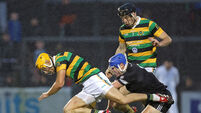
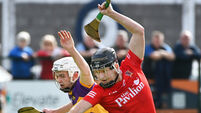




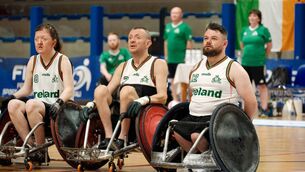
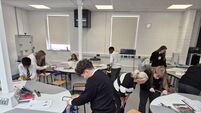


 App?
App?







